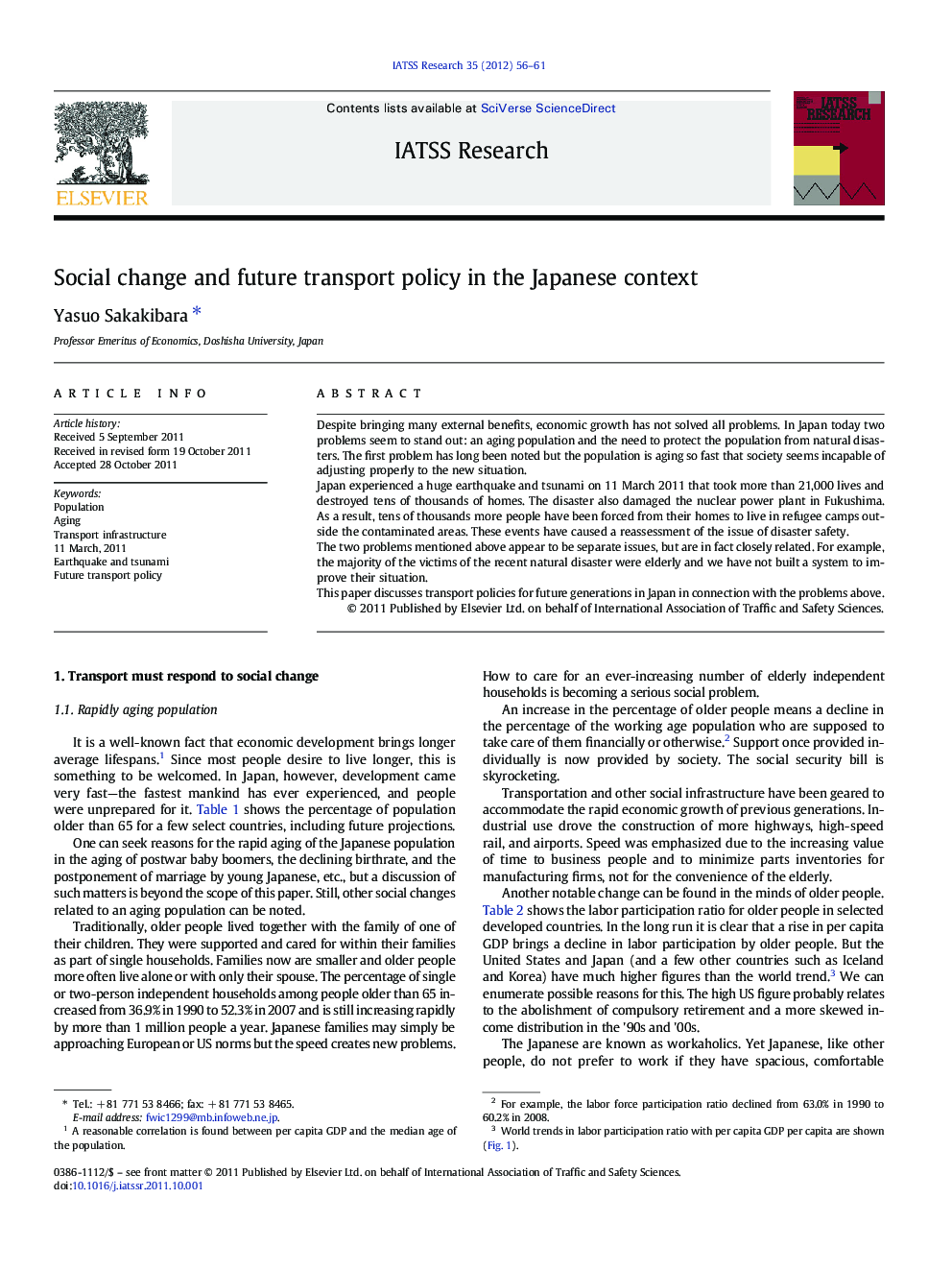| Article ID | Journal | Published Year | Pages | File Type |
|---|---|---|---|---|
| 1104722 | IATSS Research | 2012 | 6 Pages |
Despite bringing many external benefits, economic growth has not solved all problems. In Japan today two problems seem to stand out: an aging population and the need to protect the population from natural disasters. The first problem has long been noted but the population is aging so fast that society seems incapable of adjusting properly to the new situation.Japan experienced a huge earthquake and tsunami on 11 March 2011 that took more than 21,000 lives and destroyed tens of thousands of homes. The disaster also damaged the nuclear power plant in Fukushima. As a result, tens of thousands more people have been forced from their homes to live in refugee camps outside the contaminated areas. These events have caused a reassessment of the issue of disaster safety.The two problems mentioned above appear to be separate issues, but are in fact closely related. For example, the majority of the victims of the recent natural disaster were elderly and we have not built a system to improve their situation.This paper discusses transport policies for future generations in Japan in connection with the problems above.
► How to secure mobility for elderly citizens should be a higher policy target. ► Social security bill should be spent more to maintain independence of elderly families rather than to pay for medical and nursing cost. ► Lessons should be learnt from 11 March: (1) keeping multimodal competition and coordination, (2) careful plan of networks, (3) cost-benefit analysis should include calculated risk of natural disaster. ► Set the future targets of transport policies based on economic principles to avoid the pork-barrel of politicians.
